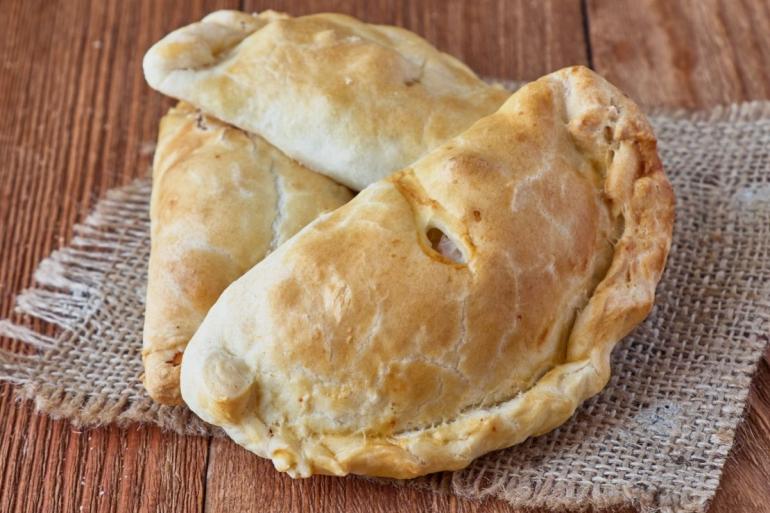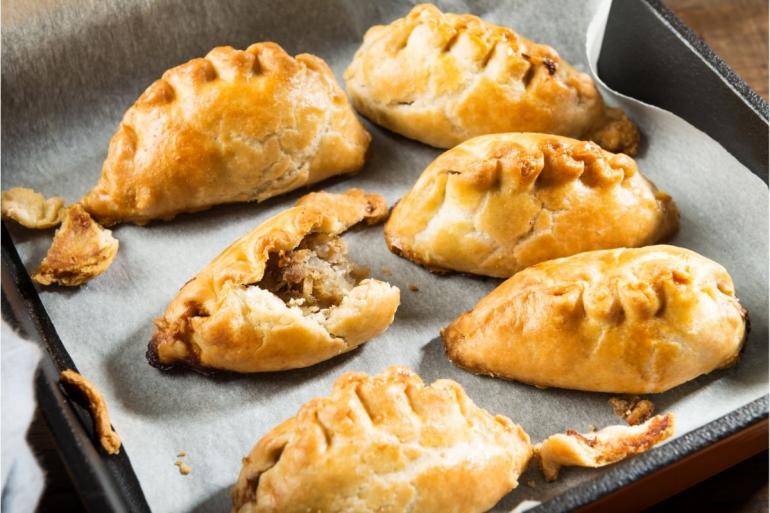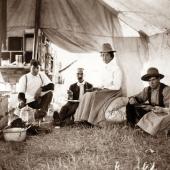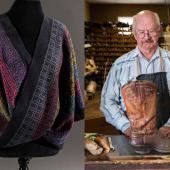Wild West Words: "Pasty"

Credit the Italians for sharing with the world their pizza, pasta, marinara. Thanks, Japan, for sushi, sake and mochi. And we owe a certain debt of gratitude to Cornwall, traditional home of the humble, nutritious pasty.
Cornwall, a county in southwestern England, is situated on a peninsula reaching long and far into the Atlantic. Abundant deposits of tin and copper throughout the peninsula sent prehistoric Cornish miners to labor underground, an industry that continued into the early 1900s.
For centuries, the traditional meal of Cornish tin miners was the pasty. Made daily by wives and mothers, pasties were the perfect portable meal: a miscellany of vegetables and meat encased and baked in a D-shaped pastry shell.
Local lore says the thickened crust on the curve of the “D” made a handle for dirty, arsenic-laced hands. With the best part of the pasty consumed, the miners then threw the “handle” on the ground as an offering to the Knockers, wee subterranean people whose mischief was averted with bits of food.
It’s been estimated that Cornish miners extracted two million tons of tin by the early 19th century. The peninsula’s mining industry contracted in the mid-1800s when competition from abroad and economic doldrums forced some 500,000 Cornish workers to seek employment elsewhere. The miners of the Cornish diaspora took pasties with them to the mines of South Africa, Australia, and Butte, America, giving folks in other corners of the world a taste for the savory preparation.
Meanwhile, back in Cornwall, pasties remain popular despite the decline of the mining industry. The Cornish Pasty Association, formed in 2011 to protect the food’s traditional recipes, ensures that any product labeled “Cornish pasty” must be made in Cornwall. Cornish Pasty Week, an annual event organized by the Pasty Association, features baking contests, with locals and tourists by the thousands enjoying the county’s most famous food.

Word History: An English document dated 1296 mentions one “Simon le Pastymaker,” and another from 1300 lists the contents of a table: “Bread and cheese, butter and milk, pasties and flans.”
So pasty has a long history in the English language. It comes ultimately from the Latin pasta, referring to dough or paste. This Latin term is the source of the related pastry, pâté, pastiche and patty.
How to pronounce the word pasty? The Oxford English Dictionary suggests rhyming the first syllable with “blast.” American English speakers seem a bit confused and embarrassed by the word, reluctant to pronounce it paste-ee, the name for the nipple-cover used by strip-teasers.
I say pasty, you say oggie. In the Cornish dialect, oggie is the word for the food, and the locals still refer affectionately to their specialty this way. Oggie is thought to be a variation of the Cornish hoggan, meaning “pile, heap, or lump (of dough).”
Another lexical morsel from the Land of the Pasty: the seaside resort of Penzance is situated on the southeast coast of Cornwall. It is the same town featured in Gilbert and Sullivan’s 1879 comic opera The Pirates of Penzance.













Leave a Comment Here